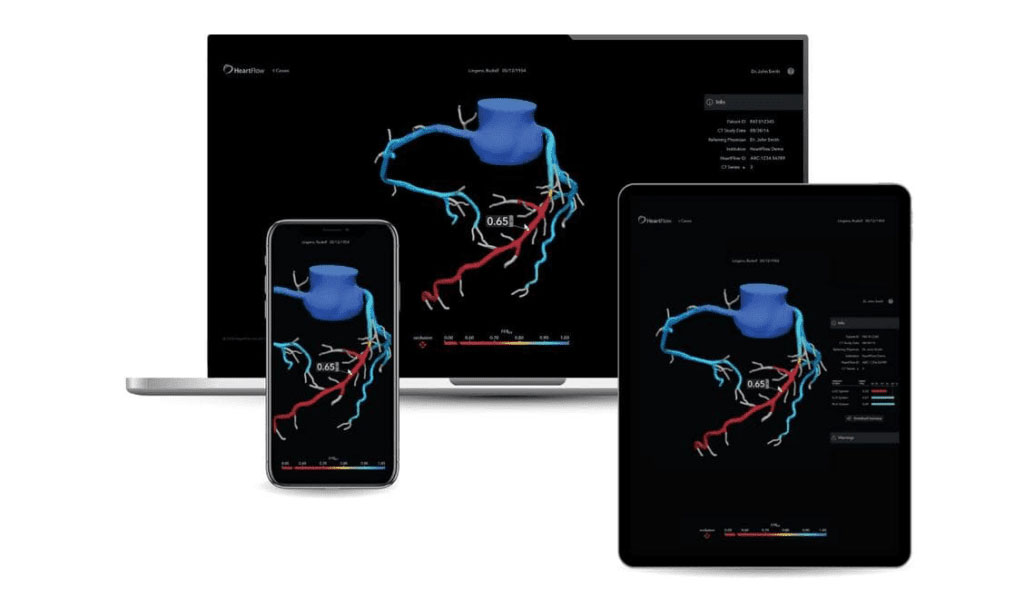CT-Scan Based Heart Test Shown to Significantly Decrease Cardiovascular Mortality
Posted on 19 Oct 2023
Coronary artery disease (CAD) is the leading cause of death globally. While non-invasive tests are commonly used for diagnosing CAD, their accuracy could be improved. Many of these tests provide a general assessment of a patient's CAD risk but fall short of gauging the extent of specific arterial blockages. This gap often results in more tests, adding to the patient’s financial burden. Now, a non-invasive personalized cardiac test has demonstrated its capability to considerably reduce cardiovascular mortality and additional non-invasive heart testing, while increasing cath lab efficiency.
The FRCT (Fractional Flow Reserve – Computed Tomography) developed by HeartFlow Inc. (Mountain View, CA, USA) is the first-of-its-kind non-invasive integrated heart care solution that creates a 3D model of the coronary arteries. This helps doctors not only find blockages but also evaluate their severity and impact on heart function. The results of a large, real-world, multi-center, retrospective study, known as the FISH&CHIPS study, which involved over 90,000 patients, have now been published. This two-year study aimed to evaluate the added benefits of including FFRCT in a CCTA-first (Coronary Computed Tomography Angiography) diagnostic strategy for managing CAD.

The study showed a notable 14% relative decline in deaths due to heart issues and an 8% relative decline in deaths from all causes. It also indicated improved efficiency in cath labs, highlighted by a 5% relative drop in the use of invasive cardiac angiography (ICA) and an 8% relative uptick in Percutaneous Coronary Interventions (PCI). Moreover, the study demonstrated a 14% relative reduction in the need for further non-invasive cardiac tests post-CCTA. Additionally, the study found that patients with severely abnormal FFRCT readings (≤0.50) faced twice the risk of death from any cause and three times the risk of a non-fatal heart attack compared to those with normal FFRCT values.
“The nationwide CCTA-first approach for evaluating patients with possible cardiovascular disease has become the model of both clinical efficacy and efficiency, which is why clinical guidelines across the globe have adopted it,” said Campbell Rogers, Chief Medical Officer, HeartFlow. “FISH&CHIPS demonstrates that the decision to incorporate the HeartFlow FFRCT Analysis into patient care extended the lives of many patients and ensured efficient and effective use of noninvasive and invasive testing and treatment.”
Related Links:
HeartFlow Inc.













